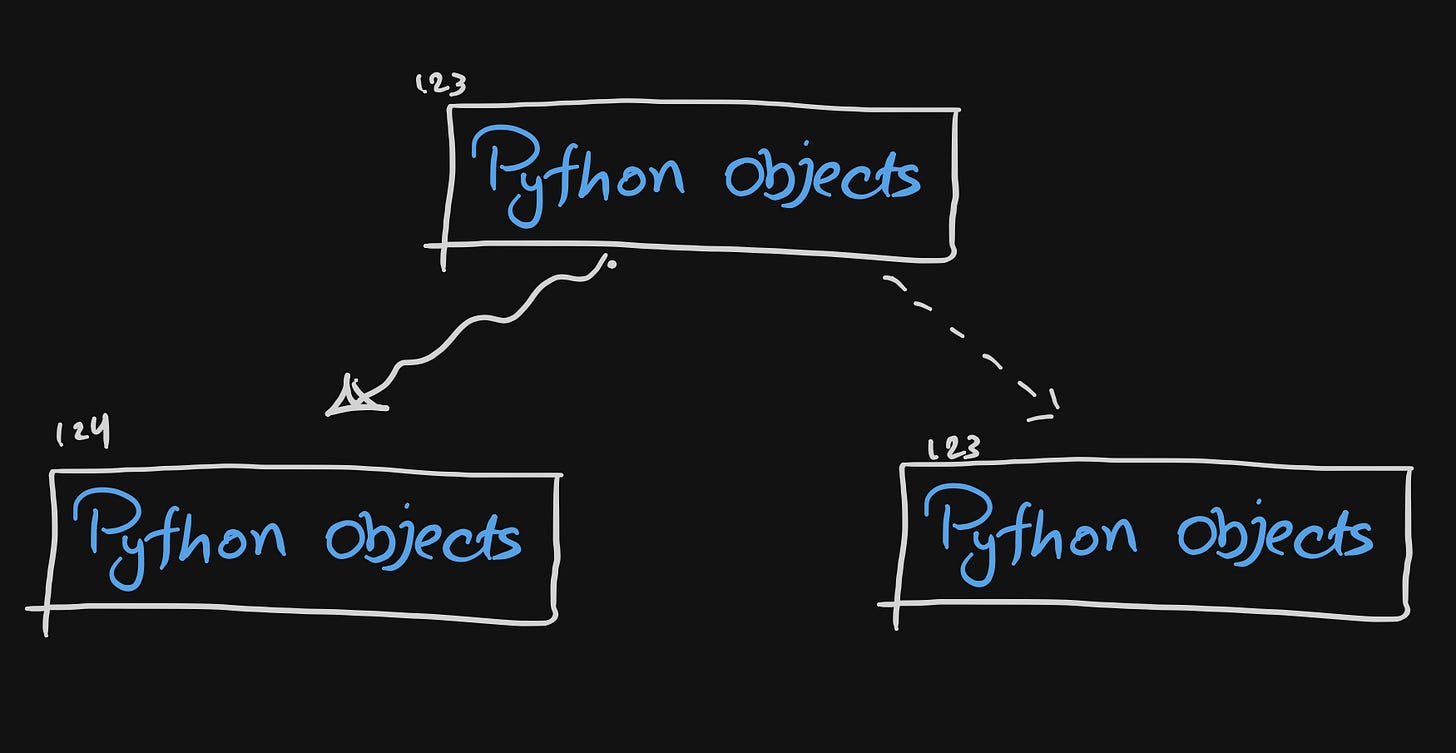Python Arguments: Passed by Reference or Value? A Brief Explanation.
This is one aspect of Python that may not be straightforward, particularly for beginners. When passing a parameter to a function, is it passed by value (a copy of the variable) or by reference (a pointer/reference to the variable)?
It depends on the variable type
We have 2 main types of variables in Python, mutable and immutable .
Mutable variables, such as lists, dictionaries, and sets, can have their content altered without the need for re-initialization.
Immutable variables, including tuples, strings, and integers, are not designed to have their content changed without re-initialization, which involves creating a new variable.
Let me show you what I mean by a simple example
>>> x = 5
>>> id(x)
4323140904
>>> x += 1
>>> id(x)
4323140936
>>> #You can see how the id of the variable x has changed
>>> l = [1]
>>> id(l)
4308117184
>>> l.append(2)
>>> id(l)
4308117184
>>> #while appending new values to the list, it still maintains the same id
>>> l = [1, 2]
>>> id(l)
4308119552
>>> # But after re-initializing it, it changes
How does that work when passing as arguments?
When you pass a variable to a function, it takes into consideration the type of this variable, and from here, it behaves accordingly
Example: Passing an immutable variable to a function
>>> x = 1
>>> def add_2(a):
... print(f"id(a):{id(a)}")
... a +=2
... print(f"id(a):{id(a)}")
... print(a)
...
>>> id(x)
4323140776
>>> add_2(x)
id(a):4323140776
id(a):4323140840
3
>>> x
1
As you can see in the previous example, the id of the argument a was the same as x before we changed its value, but it changed after! and the value of x hasn't changed!
Example: Passing a mutable variable to a function
>>> def append_2(a):
... print(f"id(a):{id(a)}")
... a.append(2)
... print(f"id(a):{id(a)}")
... print(a)
>>> ls = [1]
>>> append_2(ls)
id(a):4308118656
id(a):4308118656
[1, 2]
>>> id(ls)
4308118656
>>> ls
[1, 2]
As you can see here, things are a little bit different!
The reference to the list didn't change even after appending a new value to the list, and the append operation reflected on the original ls list!
💡
In simpler terms, consider the main rule here is that Python passes variables by Reference. if the variable is immutable, any change you apply to it will not affect the original variable, so it will look like you are passing by value, but if it is mutable, it will keep acting like passing-by-reference as it is.
]]>


